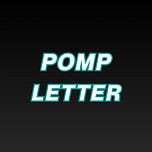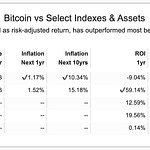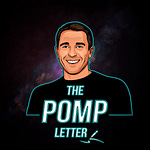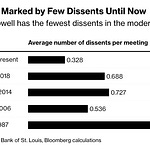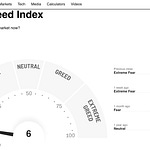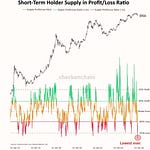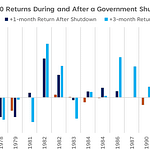To investors,
I have been reading one book per week this year. This past week’s book was Be Water, My Friend: The Teachings of Bruce Lee by Shannon Lee. Highly recommend reading it. If you are interested in the individual highlights that I made in the physical book, you can read those here. Hope you enjoy these notes every Monday morning.
Book’s main argument:
Bruce Lee was an international icon who used martial arts to teach the world how to be better human beings. Although he died at age 32, Lee wrote an immense of his lessons down in his journal before his death. This book is written by his daughter, Shannon, who interprets her father’s writing for the modern world. It covers everything from aspirational improvement to dealing with crisis to how to relentlessly pursue greatness.
5 Big Ideas:
💡 Idea #1 — Bruce Lee’s most famous lesson to the world was “Be water, my friend.” He realized that water was a natural phenomenon that humans could emulate for a better life. The origination of the idea came when Lee was angry while sitting in a boat in the South China Sea and he reached over to punch the ocean out of frustration. He later wrote in his journal:
“Had not this water just now illustrated to me the principles of gung fu? I struck it but it did not suffer hurt. Again, I struck it with all my might—yet it was not wounded! I then tried to grasp a handful of it but this proved impossible. This water, the softest substance in the world, which could be contained in the smallest jar, only seemed weak. In reality, it could penetrate the hardest substance in the world. That was it! I wanted to be like the nature of water.”
Shannon Lee expands on this idea of being water:
“Water, an element that is soft yet strong, natural yet able to be directed, detached yet powerful, and above all, essential to life.”
“At its essence, water flows. It finds its way around (or even through) obstacles. My father would call this having “no limitations.””
“This is the basic way of water. It is unstoppable. And though the word water is reflected nowhere in my father’s core tenet above, the phrase represents perfectly one of the preeminent water basics that I want us to begin to sit with—that water is undeterred.”
“Let’s think of water as unstoppable, similar to how many people think of Bruce Lee as unstoppable.”
This idea of being unstoppable is tied closely to your personal decision to keep going, regardless of the obstacles you face.
“We get to choose whether to stop at the first obstacle or keep going, unlike water, which always chooses to keep going if given the opportunity.”
“If we want to fulfill our human potential, then we can’t let ourselves be complacent or stopped either—we have to find our way forward and keep being replenished again and again. And in order to find our way, we need to be paying attention. We need to be aware of what is happening all around us.”
💡 Idea #2 — It takes incredible focus, persistence, and effort to become phenomenal at something. Bruce Lee was fanatical about this. Phenomenal is a word that is used by many people who knew him. Shannon Lee writes:
“My father was a truly phenomenal specimen of a human being in many ways—intelligent, creative, learned, skilled, driven. He worked really hard to cultivate every aspect of himself. At one point he said, “Some may not believe it, but I spent hours perfecting whatever I did.” He worked not only at sculpting his body but at shaping his mind, educating himself, evolving his practices, developing his potential. He also worked at the little things, like having beautiful handwriting, writing and speaking grammatically well, developing a colloquial understanding of English through joke-telling, learning how to direct a film—the list goes on and on. And as a result, he created a legacy that continues to be relevant forty-seven years after his death.”
Shannon goes on to explain that her dad knew exactly what he wanted to accomplish, but then put in the work to successfully achieve those outcomes.
“Bruce Lee was phenomenal because he worked relentlessly to be phenomenal.”
“I have heard story after story about how my father was always training, stretching, writing, reading, teaching, working, so I had to ask my mom if he ever just did nothing. And she said, “No.” Even when he was reading a book or watching a boxing match on TV, he was also stretching or doing something active. He would take the stairs instead of the elevator, and if he had to wait for an elevator, he would drop and do push-ups while he waited. Yep—that’s my dad!”
This doesn’t mean that everything was easy. In fact, Bruce Lee dealt with many obstacles, but he learned how to use them to his advantage. He saw opportunity. Shannon writes:
“Worry doesn’t solve a problem; it makes a problem out of the problem. Pessimism doesn’t solve a problem; it makes a problem harder by implying it is impossible to solve. Fear doesn’t solve a problem; it stops us from attacking the problem because we are afraid of failing or making the problem worse. Doubt doesn’t solve a problem; it gives you an excuse not to solve the problem. And apathy doesn’t solve a problem; it leaves you uncaring about anything at all. All this negativity just blunts the tools you have at your disposal to overcome an obstacle. It creates obstacles in front of obstacles.”
💡 Idea #3 — Be yourself. It takes immense confidence and a lack of fear to successfully do this. It can be difficult, but it is worth doing. Shannon Lee writes:
“Bruce Lee was so quintessentially himself that no one else will ever come close to truly imitating him. The way he moved, the sounds he made, the way he spoke, his handwriting, his musculature, it was all artisanal—crafted by his own hand and through his own effort. He didn’t seek to create himself in anyone else’s image. He sought only to be himself. And that he did magnificently. I think this is the thing we sense in him when we see him—that he is somehow this heightened version of what is possible in a human being, and it feels extraordinary and exciting.”
Bruce Lee understood the importance of originality. It is not worth merely imitating others.
“When I look around, I always learn something and that is to be always yourself, and to express yourself, to have faith in yourself. Do not go out and look for a successful personality and duplicate it. Start from the very root of your being, which is ‘how can I be me?” — Bruce Lee
Being yourself is the ultimate freedom. Shannon writes:
“Being wholly ourselves is freedom—not being under the control or power of anyone else mentally, emotionally, spiritually, but rather, personally permitted to act on behalf of ourselves.”
💡 Idea #4 — The human experience lacks enjoyment and meaning if you aren’t actively looking to help others. Regardless of what the media tells us, human beings are all on the same team. Bruce Lee wrote:
“If every man would help his neighbor, no man would be without help. I’m not one of those guys that can brush people off. Besides, I feel that if I can just take a second to make someone happy, why not do it?” — Bruce Lee
Many people may not realize that Bruce Lee was one of a few global superstars to actively speak out against racism during the 1960s and 1970s. He wrote:
“I, Bruce Lee, am a man who never follows the formulas of these fear-mongers. So no matter if your color is black or white, red or blue, I can still make friends with you without any barrier. In saying that “everyone under the sun is a member of a universal family,” you may think that I am idealistic. But if anyone still believes in things like racial differences, I think they are too narrow. Perhaps they still do not understand love.”
Shannon Lee explains that this view of humanity and the world allows us to take negative actions or thoughts and turn them into opportunities for learning.
“Intolerance can teach tolerance. Judgment can teach acceptance. War can teach peace. Fear can teach love. Shadow can teach light. Open your mind. Rebalance the scale. Look where you’ve not looked before.”
💡 Idea #5 — Death is not something to fear. Bruce Lee lived an incredible life, but it was cut short. Normally we wouldn’t have the benefit of knowing how a young person thought of the ultimate end. Shannon Lee explains the public’s general thoughts on her dad:
“A quote that is often attributed to my dad, but which is in fact not his quote is, “The key to immortality is first living a life worth remembering.””
Thankfully, Bruce Lee happened to have written about death in his personal journal though. We don’t have to guess what he said. His thoughts are as powerful as you would expect:
“I don’t know what is the meaning of death, but I am not afraid to die. And I go on, non-stop, going forward, even though I, Bruce Lee, may die some day without fulfilling all of my ambitions, I will have no regrets. I did what I wanted to do and what I’ve done, I’ve done with sincerity and to the best of my ability. You can’t expect much more from life.” — Bruce Lee
Memorable quotes:
“If you think a thing is impossible, you’ll make it impossible. Pessimism blunts the tools you need to succeed.” — Bruce Lee
“Be a practical dreamer backed by action.” — Bruce Lee
“The enemy of development is pain phobia—the unwillingness to do a tiny bit of suffering.” — Bruce Lee
Fighting hate with hate only increases the amount of hate in the world.
When we train to know ourselves, then we gain assuredness and confidence.
Taking responsibility is empowering.
That feeling of insecurity is a powerful driver to do whatever we can to make it go away.
When we are enthusiastic, we are inspired by life.
Our obstacles are among some of our greatest teachers.
“Use the ego as a tool rather than a possession. Inwardly, psychologically, be a nobody.” — Bruce Lee
Pomp’s Takeaways:
This book was gifted to me by Jon Finkel. It was just as powerful as it was enjoyable to read. Definitely a book I will be re-visiting in the future.
The first big takeaway I had was how important Bruce Lee thought practice was. His famous quote of fearing a man who practices one kick ten thousand times should give us a hint, but his daughter mentions the power of practice multiple times as well. This is a theme that is consistent across almost any book I read about someone prolific or successful.
The second big takeaway was Bruce Lee’s obsession with learning. He was widely thought to be one of the best martial artists in the world, but he considered himself “to be the eternal student — always open to new ideas, new possibilities, new directions, and new growth.” It takes immense humility to do this when at the top of your game. That humility was rooted in an idea that Bruce wrote about called “being a nobody.” His daughter explains that “It means check your ego at the door and don’t let your definition of self-importance or self-protection get in the way of your progress around obstacles.” Even the best people have more room to grow.
The third big takeaway was how action-oriented Bruce Lee was. Whenever an idea would strike him, he would immediately try to execute on it. If he couldn’t execute on it, he would write it down. He didn’t want to be a dreamer. He didn’t want to be a thinker. He wanted to be a man of action. Bruce Lee prided himself on getting things done and constantly pursuing greatness. This is something that everyone in the modern world suffers with, so we can all learn a lesson here — act now. Get things done. Don’t wait. Be a person of action.
The fourth big takeaway was Bruce Lee’s desire to avoid the easy life. He despised anything easy. He wanted to take the difficult path because he understood that is where he would grow and learn. Shannon Lee wrote “the desire for “easy” often brings out complacency in us. “Easy” can make us lean toward ignorance, laziness, habit, and fear because we don’t want life to be too hard and unpredictable and because we fear the discomfort of the unknown and the potential challenging feelings that might arise out of our dark places.” Don’t take the easy path. Seek out hard things. Pursue the work that will force you to improve and learn.
My fifth and final takeaway was Bruce Lee’s willingness to throw away life-changing wealth opportunities if they would lead to mediocre work. There is a famous story of a movie being filmed in Hong Kong. Bruce thought the script was mediocre, so he personally re-wrote it. The studio didn’t want to use the re-written version. Bruce said no problem and refused to film the original script. Literally just sat in his house until the studio finally gave in. The studio tried to tell the world that Bruce Lee was scared of the big stage, but ultimately Shannon Lee explains that “Bruce Lee was not afraid of this opportunity. In fact, he was the only person who recognized the full nature of the opportunity and what it could be, and he would have rather blown it up than wasted it by doing something half-assed.”
Be phenomenal. Don’t settle for mediocrity. Be water, my friend.
As I mentioned, this past week’s book was Be Water, My Friend: The Teachings of Bruce Lee by Shannon Lee. Highly recommend reading it. If you are interested in the individual highlights that I made in the physical book, you can read those here. Hope you enjoy these notes. Feel free to leave a comment - I read all of them.
-Pomp
Note: Make sure you are subscribed to receive these personal notes each Monday morning.
Announcement: I am hosting a conference at the Miami Beach Convention Center on March 4, 2023. Anyone can attend for free. The goal is to bring together people from different walks of life to debate important ideas that impact our society on a daily basis. The speakers are many of the most popular guests from the podcast over the last few years, along with a few surprises. If you’re interested in attending, you can read about the event details here:
You are receiving The Pomp Letter because you either signed up or you attended one of the events that I spoke at. Feel free to unsubscribe if you aren’t finding this valuable. Nothing in this email is intended to serve as financial advice. Do your own research.

